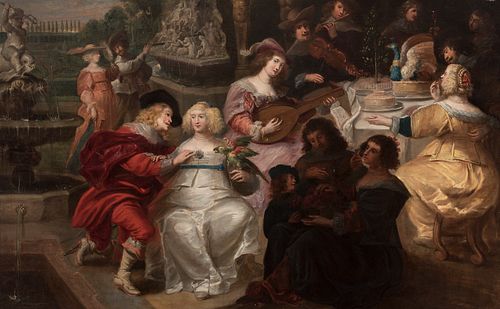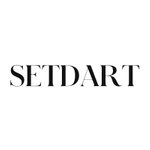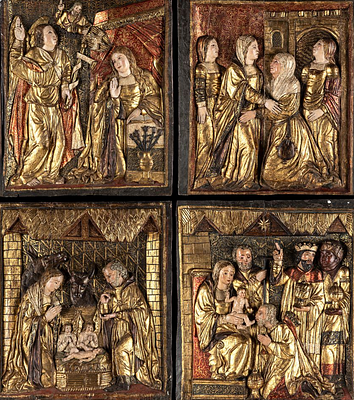Flemish school; XVII century. Untitled. Oil on canvas. Relined.
Lot 94
About Seller
Setdart Auction House
Carrer Aragó 346
Barcelona
Spain
Setdart Subastas was born in 2004 and is currently the first online art auction in Spain with solidity, prestige and reliability guaranteed by our more than 60,000 users. Setdart has a young, dynamic and enterprising team ready to successfully manage the purchase and sale of art works through custom...Read more
Estimate:
EUR€60,000 - EUR€70,000
$64,516.13 - $75,268.82
Absentee vs Live bid
Two ways to bid:
- Leave a max absentee bid and the platform will bid on your behalf up to your maximum bid during the live auction.
- Bid live during the auction and your bids will be submitted real-time to the auctioneer.
Bid Increments
| Price | Bid Increment |
|---|---|
| EUR€0 | EUR€10 |
| EUR€200 | EUR€25 |
| EUR€500 | EUR€50 |
| EUR€1,000 | EUR€100 |
| EUR€3,000 | EUR€200 |
| EUR€5,000 | EUR€500 |
| EUR€10,000 | EUR€1,000 |
| EUR€20,000 | EUR€2,000 |
| EUR€50,000 | EUR€5,000 |
About Auction
By Setdart Auction House
Oct 20, 2021
Set Reminder
2021-10-20 07:30:00
2021-10-20 07:30:00
America/New_York
Bidsquare
Bidsquare : OLD MASTERS
https://www.bidsquare.com/auctions/setdart-auction-house/old-masters-7700
Setdart Auction House sofia@setdart.com
Setdart Auction House sofia@setdart.com
- Lot Description
Flemish school; XVII century. Untitled. Oil on canvas. Relined. Presents repainting and restorations. Size: 125 x 202 cm; 143 x 220 cm (frame). A great group of people meet in this scene, located in an exterior of palace character. All of them recreate themselves in an activity, they are divided by independent groups, although all of them seem to show the spectator that they are celebrating a common party with food, wine and different games in front of a house. Both the attitudes, the environment and the clothing invade the viewer that these are characters of a high social position, since they represent wealth, abundance and perhaps also, the sophistication of the court. Beyond this representation, the scene also invites allegorical reflection, since the author proposes in the same scene different actions that allude directly to the senses, such as sight, taste and smell, represented by the table full of delicacies, hearing through the musical instruments seen in the foreground, and touch. This interest in this representation is very reminiscent of the works of the five senses by the painter Rubens and Brueghel, which today are in the Prado Museum and which, as in this particular case, show a composition that stands out for the abundance and precise detail of all the elements that make up the scene. This type of representations closely linked to the genre gabinet d'amateur, which originated in Flanders, may have developed for two reasons. Firstly, because of the development of the modern devotio and the influence of Holland on the political emancipation of the region, as well as the economic prosperity of the liberal bourgeoisie. The combination of the discovery of nature, objective observation, the study of the concrete, the appreciation of the everyday, the taste for the real and material, the sensitivity to the seemingly insignificant, made the Flemish artist commune with the reality of everyday life, without seeking any ideal alien to that same reality. The painter did not seek to transcend the present and the materiality of objective nature or to escape from tangible reality, but to envelop himself in it, to become intoxicated by it through the triumph of realism, a realism of pure illusory fiction, achieved thanks to a perfect and masterful technique and a conceptual subtlety in the lyrical treatment of light.
- Shipping Info
-
In-house shipping available. Please inquire at admin@setdart.com.
-
- Buyer's Premium



 EUR
EUR CAD
CAD AUD
AUD GBP
GBP MXN
MXN HKD
HKD CNY
CNY MYR
MYR SEK
SEK SGD
SGD CHF
CHF THB
THB









